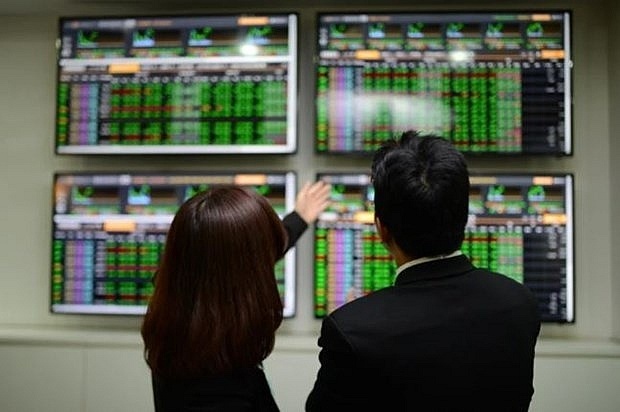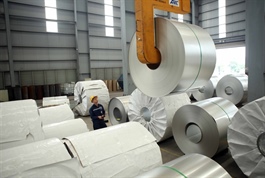Obstacles to stock-market upgrade to be removed
Obstacles to stock-market upgrade to be removed
The approval of the amended Securities Law by the National Assembly on November 29 marks a significant step forward for Vietnam’s stock market, laying the groundwork for its long-term development and aspirations of achieving emerging market status.
The revised law introduces several pivotal provisions, including strengthening the responsibilities of issuers, advisory units, and auditors in the issuance licensing process.
“This will improve the quality of market products and directly support Vietnam’s stock market upgrade by international organisations such as FTSE and MSCI,” said Do Bao Ngoc, deputy CEO of CSI Vietnam Construction Securities. “The law also addresses market manipulation by clearly defining prohibited behaviours, empowering regulatory bodies to take stronger actions against harmful activities. Additionally, the introduction of regulations to establish independent clearing and settlement companies will allow the implementation of a central counterparty system.”
The amended law is expected to enhance the responsibilities of market participants, improve transparency, and boost regulatory monitoring capabilities. These measures will not only strengthen investor confidence but also provide a robust foundation for the Ministry of Finance and the State Securities Commission to refine the legal framework and operational systems necessary for a market upgrade by 2025-2026.
|
Despite the progress brought by the amended law, Ngoc noted that several key challenges remain on the path to achieving emerging market status.
Firstly, Vietnam needs a more flexible approach to foreign ownership limits, particularly in sectors with no current restrictions. “Foreign investors should be allowed to own up to 100 per cent in such sectors. For restricted industries, ownership limits should be raised to 49 per cent, aligning with Vietnam’s commitments under free trade agreements,” Ngoc said.
Secondly, enhancing foreign investor access to information is critical. Regulations requiring Vietnamese companies to disclose financial information in English would significantly improve transparency. Additionally, streamlining account opening procedures for foreign investors is essential to facilitate access to Vietnam’s financial markets.
Finally, the freedom of Vietnam’s foreign exchange market remains a complex hurdle. While there is no fully developed foreign exchange system, Ngoc pointed out that other countries, such as China, have successfully achieved an MSCI upgrade despite similar limitations.
A key milestone in Vietnam’s upgrade aspirations is the implementation of a central counterparty system. Once operational, the system is expected to meet approximately 80 per cent of FTSE’s upgrade criteria and around 60 per cent of MSCI’s requirements.
Vietnam’s stock market currently has no record of failed trades. However, FTSE does not assess markets based on the occurrence of failed trades but evaluates whether effective systems exist to manage such scenarios.
In response, the Vietnam Securities Depository and Clearing Corporation (VSDC) is actively working to address these gaps. The corporation is studying amendments to the Securities Law and Decree No.155/2020/ND-CP to establish a CCP system and mitigate settlement risks.
“Ensuring market stability through a robust institutional framework is one of VSDC’s strategic priorities. Establishing a subsidiary to function as a CCP is essential to managing settlement risks and meeting the requirements for a market upgrade,” said Ta Thanh Binh, general director of VSDC.
Binh noted that VSDC has been actively involved in refining legal and regulatory frameworks during the third and fourth quarters of this year. The organisation is also working towards implementing English-language disclosure requirements according to a clear roadmap, which will further improve transparency criteria.
According to Nguyen Tien Dung, head of Research at MB Securities, the establishment of a central counterparty system remains the final hurdle in meeting FTSE’s upgrade requirements.
“It is unlikely that the central counterparty system will be fully operational before the second quarter of 2025. Therefore, the most feasible scenario is that Vietnam’s stock market will need to wait until FTSE’s September 2025 review for an upgrade announcement,” Dung said.
While challenges remain, the amended Securities Law has laid a solid foundation for Vietnam’s stock market to achieve its upgrade goals. With continued efforts to address key bottlenecks and implement critical systems, the future looks promising for Vietnam’s journey towards emerging market status.
Do Bao Ngoc, deputy CEO of CSI Vietnam Construction Securities In the long term, the positive impacts of the amended Securities Law will be significant as the regulatory bodies continue to improve the legal framework, technology, and enforcement mechanisms to implement the new securities law. In the short term, the law will have a positive psychological effect on investors, strengthening their confidence in the sustainable development of Vietnam’s stock market. However, recent market movements have been influenced by various external factors, such as exchange rate fluctuations, interest rates, and monetary policy actions by the State Bank of Vietnam. |




























